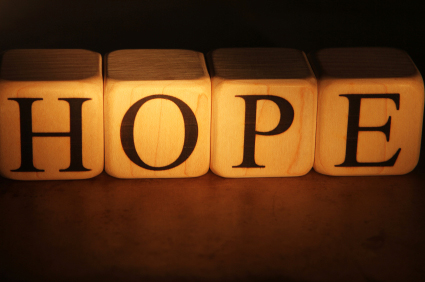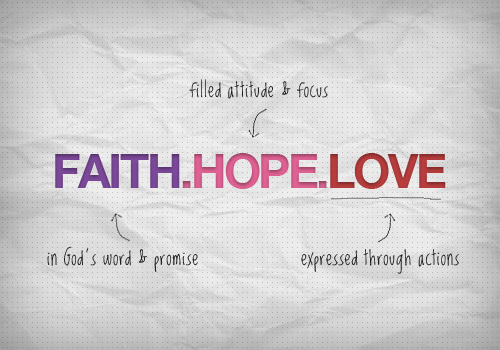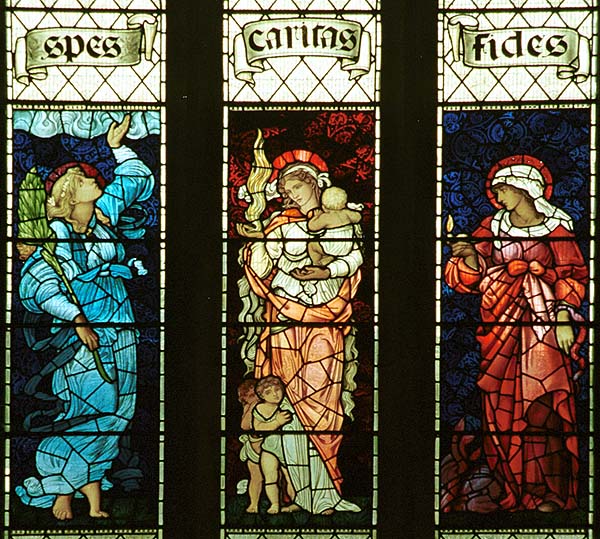“May the God of hope fill you with all joy and peace in believing, so that you may abound in hope by the power of the holy Spirit. – Romans 15:13
“The French Catholic layman Charles Péguy (1873-1914) wrote a beautiful poem that can make the virtue of hope more tangible for us. The poem opens with the striking line, “The faith that I love the best, says God, is hope.”85 The poem continues:
“Faith doesn’t surprise Me.
It’s not surprising.
I am so resplendent in My creation . . .
That in order really not to see
Me these poor people would have to be blind.
Charity, says God, that doesn’t surprise Me.
It’s not surprising.
These poor creatures are so miserable that unless they had a heart of stone, how could they not have love for each other . . .
But hope, says God, that is something that surprises Me. (n.b. theologically, God cannot be surprised…)
Even Me.
That is surprising.
That these poor children see how things are going and believe that tomorrow things will go better . . .
That is surprising and it’s by far the greatest marvel of Our grace.
And I’m surprised by it Myself.
And My grace must indeed be an incredible force.”86
Péguy employs striking metaphorical and poetical images here to suggest the power of hope, indicating to us how surprising hope can be when we experience degradation, deprivation, suffering, and evil in the world. He depicts Hope in the poem as a little girl who has two older sisters, Faith and Love. Hope is the innocent, wide-eyed, trusting little child:
“What surprises Me, says God, is hope.
And I can’t get over it.
This little hope who seems like nothing at all.
This little girl hope . . .
Faith is a loyal Wife.
Charity is a Mother.
An ardent mother, noble-hearted. Or an older sister who is like a mother.
Hope is a little girl, nothing at all.
Who came into the world on Christmas day just this past year.
Who is still playing with her snowman . . .
And yet it’s this little girl who will endure worlds.
This little girl, nothing at all.
She alone, carrying the others, who will cross worlds past.
As the star guided the three kings from the deepest Orient.
Toward the cradle of My Son.
Like a trembling flame.
She alone will guide the Virtues and Worlds.”87
Our hope should make us feel every day more and more little — like a small child who relies on God his Father for everything. This life of spiritual childhood has been recommended by many saints, notably St. Thérèse of Lisieux. It is actually indicative of Christian maturity and has nothing to do with childishness. Hope is a child, walking between her two older sisters: wide-eyed and innocent, trusting and joyful. Such should be the shape and character of our own hope. Can a person who is totally imbued with this sort of hope ever be completely overtaken by despair, however terrible the burdens and cares of this life? The depressed person may indeed often feel overwhelmed; but this need not be a cause for final despair. Just as we cannot imagine an innocent little girl giving in to total despair in the face of setbacks or contradictions, so the person with hope can endure even these things with serenity and perseverance.
To understand the power of hope, we can examine the vices that run contrary to the virtue of hope. Regarding these, St. Augustine wrote, “There are two things which kill the soul, despair and presumption.”
The Catechism lists them under the First Commandment as sins against hope:
2091 By despair, man ceases to hope for his personal salvation from God, for help in attaining it or for the forgiveness of his sins. Despair is contrary to God’s goodness, to His justice — for the Lord is faithful to His promises — and to His mercy.
2092 There are two kinds of presumption. Either man presumes upon his own capacities (hoping to be able to save himself without help from on high) or he presumes upon God’s almighty power or His mercy (hoping to obtain his forgiveness without conversion and glory without merit).
When we fall into presumption, we do not have hope, because we mistakenly assume that we have already arrived at the goal. This is a form of self-satisfied and stagnating pride. The second vice contrary to hope is probably more common, and a form of self-satisfied and stagnating pride, despair. Certainly this is the greater temptation for those individuals suffering from depression. We sometimes hear it said that a person has “fallen into” despair. But despair is not actually something we “fall into”; in the end, it is something we choose. To despair means to deny that the Lord wants to or can forgive or assist us. Even the severest depression, however dark, does not entail despair in this sense.
In Dante’s Inferno, the inscription written over the gates of hell is “Abandon all hope, ye who enter here.” Final despair (I refer here not to the difficulties with hope of the depressed person) is the state proper only to the damned, of those who no longer have the possibility of being saved. To be utterly without hope is to be in a hellish state. So you could say that total despair in this life is something of an anticipation of damnation. As St. Isidore put it, “To despair is to descend into hell.” Total despair is a sort of hell on earth, where suicide may appear to be the only option. This is why the person who feels utterly hopeless finds it so difficult to summon the will to continue living.
For example, listening to accounts of addiction given by those who have recovered from drug and alcohol dependence, one can see that the life they describe is simply a state of profound despair — a sort of hell on earth. This is what a person experiences when he places his ultimate hope in a bottle, a needle, or a pill. Depression itself is not equivalent to this kind of despair, although it can predispose and incline a person to despair, as anyone who has experienced it knows too well. It is a great trial of faith to overcome this tendency. But it can be overcome with all the means discussed in this book, and especially with God’s grace.
St. John Chrysostom wrote, “It is not so much sin as despair which casts us into hell.” We may fall into sin, as even the just man sins seven times a day. But in hope, we become a repentant sinner and therefore, through Confession, a forgiven sinner. Sin never has to have the last word. Hope means we do not have to be the people we were. But despair makes our sin the last word about us, even a definitive word, because despair denies the possibility of forgiveness. Every sin is forgivable if we do not despair, if we seek God’s merciful forgiveness. Likewise, every addiction, every vice, can be overcome if we do not give in to despair.
This helps us to understand that mysterious Gospel passage which speaks of the sin against the Holy Spirit (Matt. 12:31) that Jesus says cannot be forgiven. This sin is simply the refusal to accept the grace of forgiveness. It is an obstinate despair that refuses God’s mercy. As the Catechism states:
1864 “There are no limits to the mercy of God, but anyone who deliberately refuses to accept His mercy by repenting, rejects the forgiveness of His sins and the salvation offered by the Holy Spirit. Such hardness of heart can lead to final impenitence and eternal loss.”88
The contrast between St. Peter’s repentance and Judas’s despair illustrates this: both men sinned grievously, but Peter repented with tears of contrition. He did not abandon hope. Peter’s repentance led him to become one of the greatest saints. Judas despaired, and this despair led him to take his own life.
To say that hope is a “theological” or “supernatural” virtue is to say that it is fundamentally a gift, the result of grace. To possess this hope, we must be in a state of sanctifying grace, which we can be sure of when we have confessed grave sins we are aware of. But for this hope to grow in our hearts and operate powerfully in our lives, we should pray that our hope will be increased; we should ask God to increase our hope. Our will and our effort do play a role here, since God wants us to cooperate freely with the graces He grants. “Lord, increase my hope” should be an aspiration that comes to us often, especially in times of difficulty.”
-Kheriaty, Aaron; Cihak, Fr. John (2012-10-23). Catholic Guide to Depression (pp. 216-220). Sophia Institute Press. Kindle Edition.
Love & Hope,
Matthew
85 Charles Péguy, The Portal of the Mystery of Hope, trans. David L. Schindler, Jr. (Grand Rapids: Eerdmans, 1996), 3.
86 Ibid., 3-7.
87 Ibid., 7-8.
88 Catechism of the Catholic Church, no. 1864.





